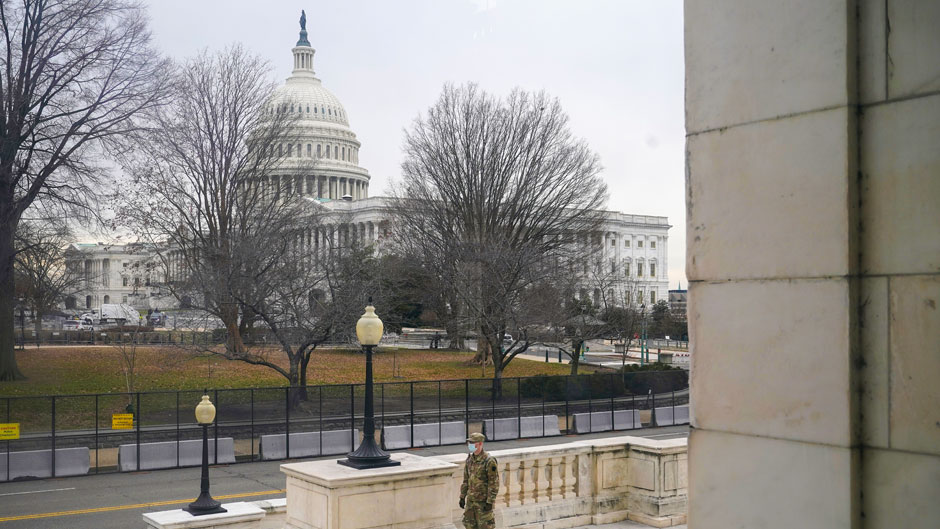The storming of the U.S. Capitol on Jan. 6 by violent protesters who ransacked the building and the alleged role of President Donald Trump in urging that violence has led Congressional Democrats to demand Trump be impeached for the second time.
Some critics believe it is too late to impeach a president who will be out of office on Jan. 20. Others believe that by calling for impeachment, it would establish a precedent that no official is above the law.
Gregory Koger, professor of political science, shares his thoughts on the process.
The Democrats plan on filing articles of impeachment against President Trump. It would be the second time the president has been impeached. Has this happened before, and if not, what are the ramifications for a second impeachment?
No president has been impeached twice. Only Andrew Johnson (1868), Bill Clinton (1998), and Trump (2019) have been impeached once.
Ramifications: at the least, a second impeachment in four years would weigh against Donald Trump's historical legacy. Moreover, if the Senate agrees to remove the president by a two-thirds vote, it can then vote by a simple majority to prohibit Trump from running for federal office again. Additionally, no presidential pardon can extend to a case where a person has been impeached. Trump would also be denied his pension and Secret Service protection.
Why file impeachment now when his term is almost over?
On Jan. 6, and in the weeks leading up to that date, the president betrayed his oath to uphold the Constitution and likely violated several federal statutes, including sedition. This behavior is absolutely unacceptable in a constitutional democracy, no matter how close a president is to the end of his term. It is even more unacceptable when he seems intent on continuing to disrupt an orderly transfer of power. At present, the president of the United States is considered unfit to operate a Twitter account, yet still maintains control of the nation's nuclear launch codes.
ln addition, if the Senate trial concludes after Jan. 20, the Senate can still bar Trump from seeking federal office again.
Can articles of impeachment, or a vote by the Senate, occur after the president has left office? What is the general timeline and/or how quickly can the process proceed?
Yes, with the main issue then being whether the officer (in this case President Trump) is barred from future federal elective office.
The timeline is flexible. It is not clear when the Senate would take up impeachment, or how long a trial would last. One factor often discussed in the media is how a Senate trial beginning next week might delay the Senate's approval of President-elect Joe Biden's cabinet nominations and early legislative agenda. Another less discussed factor is how the timing of the trial might affect the ability of the House managers to present evidence. As each day goes by, we learn more about the Jan. 6 assault on Congress. We may learn a lot more once Biden's team takes over on Jan. 20 and is in a position to share information from inside security agencies with Congress and the media. On the other hand, once Trump is a private citizen he may struggle to find anyone willing to represent him in a Senate trial. His longstanding reputation for failing to pay people who work for him, combined with his assault upon democratic norms, may deter any attorney with the requisite skills from taking on this case.
If the Senate receives the articles of impeachment weeks or months after they were filed would the process be valid?
Yes. the Constitution does not specify a timeline.
How many impeachment trials and convictions have there been?
Nineteen. Three presidential trials, one Secretary of War, 15 judges. See https://www.senate.gov/artandhistory/history/common/briefing/Senate_Impeachment_Role.htm#4.
What does “incitement of insurrection” mean and how does it tie into the Fourteenth Amendment?
I cannot provide a legal definition, but a lay definition is encouraging others to take up arms and fight the federal government. Section 3 of the 14th Amendment prevents any person who has betrayed an oath of office and “shall have engaged in insurrection or rebellion against the [Constitution of the United States] or given aid or comfort to the enemies thereof.” This provision could be applied to President Trump, and also to Congressional Republicans who have publicly embraced Trump's efforts to overturn the 2020 election and the Jan. 6 mob, including Sens. Ted Cruz (R-TX) and Josh Hawley (R-MO) and House members such as Paul Gosar (R-AZ) and Mo Brooks (R-AL). In order to invoke this clause, Congress and the courts may need to be specific how they will determine which individuals are subject to this clause.

